After several requests (fame!), 129 Ways to Get A Life now has an audio edition. You can listen here or on Spotify. Subscribe, comment, share, start a whisper campaign. I welcome it all.
Let me start by being crystal clear: because I am not a horrible person, I will not be doing Number 6 as written. This is not an episode of Sex and the City nor is this the end of The Wedding Crashers. Though many have probably wondered how those funeral pick-ups would have played out in real life, sorry! This is not the place to find answers.
I am incredibly fortunate to not yet know firsthand the grief and pain that comes with losing your person. It has, of course, been devastating to lose my grandparents over the years, to feel family gatherings contract around an empty chair that we will never again fill. But I am sure my suffering does not hold a candle to that of those who have lost someone they could never imagine life without. I have not picked up the phone to call a ghost — not yet. I know that day will come and I fear the feeling, so, for now, all I can do is hold tight to memories and moments as they are made.
In many ways it feels fitting to write this essay at the tail end of the holiday season, when grief is often more present than the gifts under the tree (my family celebrates Hanukkah so the tree is metaphorical, but same idea). A time of celebrating all that is merry and bright, December is a jolly jolt of juxtapositions, stringing together joy and togetherness with heartache and loneliness. The holidays force us to reckon with the best and worst parts of our year. It can be a difficult season for everyone, but for those who have experienced unimaginable loss, I imagine getting through this month must be akin to summiting Everest.
In truth, I’m not sure what to say to properly honor the friends, family, coworkers, and acquaintances who spent this holiday with a hole in their heart. I don’t think it’s my place to write anything other than my thoughts are with those who have experienced a loss.
I have spent much of this month thinking about the bereaved, and among them, one person in particular: my new friend Dorothy.
I first met Dorothy on a Wednesday evening this past October. We’d spoken on the phone briefly the week before to schedule our chat, but the Zoom was our first face-to-face interaction.
We were connected via Esther, a facilitator at Life Story Club, a Brooklyn-based non-profit which organizes small social clubs for older adults to share life stories and foster connections via Zoom. I had come to know Esther when she interviewed me to be a potential guest on her podcast, “All I Can Tell You Is.” Ultimately I wasn’t the right fit, but Esther and I clicked, discussing art and life and creative pursuits. When I decided that for Number 6 I would like to speak with a widow or widower about a love lost, I thought she might be able to help. Within a week, Esther connected me to Dorothy, an active member of her group at Life Story Club.
As I prepared for my initial call with Dorothy, I wasn’t sure what to expect. I was nervous and unsure of how to properly approach Dorothy about her husband, their life, his passing. I have always assumed that with death, illness, and trauma, the best way to properly tackle the topic was to avoid it altogether. I feared I would only exacerbate someone’s pain by asking them to reflect on what was lost.
But to my surprise, Dorothy logged on itching to talk about her late husband Seymour – Sy, as she calls him. She began our conversation by sharing the words Sy had spoken to her while he was sick in the hospital.
“I have loved you for 67 years.”
The objective with this list item was simple in that there was no objective. By interviewing Dorothy, I set out to hear a love story, hoping to gain insight into a world different from my own. Dorothy gave me that, and so much more – but we’ll get to that part.
For now, we begin at the beginning: Brooklyn, in the summer of 1951.
“My husband [Sy] and his brother rented a cabin in Rockaway Beach,” Dorothy told me. “But he didn’t want to go all the way out to Rockaway and decided to go to Coney Island, where I was with my friends.” She paused thoughtfully on Zoom, lost in the moment. “The minute we looked at each other, it was like… wow.”
I pushed for more details about that first encounter. How did it all go down? What did she say? What did he do? She smiled wistfully. “I don’t remember. I just know that there were sparks between us, and they never went away. We were together after that.”
Later on, Dorothy described scenes from their early infatuation. She recalled a date when Sy picked her up wearing a brown suit. “We took the subway to Downtown Brooklyn, where there was Bickford’s Cafeteria, which had a great shrimp sandwich.” She laughed. “Each time we would go, that’s what we would order. A shrimp sandwich.” Another evening was spent together at the Candle Light Room at the Hotel Victoria. “We had french fries. I don’t remember anything else, but I know we had french fries.”
I was struck by how, over the course of our conversations, Dorothy focused on lovely, little, seemingly inconsequential details. Maybe because when all is said and done, these are the memories which stand out as significant. Sure, the big moments matter, the grand gestures are awe-inspiring, and the drama of a new relationship can be intoxicating, but that’s not what punctuates a partnership. That’s not what lasts. Six decades later, what Dorothy remembered was falling in love with a man in a brown suit over shrimp sandwiches and french fries.
Dorothy and Sy married four years after they met. I asked her when she knew this was it – that Sy was the one for her. “The minute I saw him,” She didn’t miss a beat. “There was just something between us that was remarkable. I was crazy about him.”
A month or so after my call with Dorothy, I was at dinner with my parents and asked them the same question. When did you know? They grinned at each other over a plate of calamari. My Dad spoke first.
“It was our second date and we went to a concert. Mom made a Turkey and Swiss roll-up with mustard. I hate mustard, but I ate it anyway, and I liked it.” He beamed at her, eyes full of adoration for the woman he married over 30 years ago. “That’s when I knew. This meant something. This was real.”
My second Zoom with Dorothy was in early November. It was her birthday. I was surprised she wanted to speak on her special day, but shortly into the conversation I realized the meeting was perhaps as important to her as it was to me. This was her first year without Sy; the first birthday in over 67 years without her person. It was a hard day, but at least for one hour, she was able to celebrate the memory of the man she loved and lost.
Dorothy had come prepared for our meeting. “This is my Sweet 16!” She held up a photo from 1951, in which she stood in a party dress, a vibrant young woman glowing in black-and-white. Sy had been at the party, which took place a few months after they met. “But we had also invited another boy and his friends.” She giggled, explaining that they’d needed to even out the girls-to-boys ratio. “The other boy really liked me, but he saw the sparks between Sy and me, and that ended it for him. And from then on… well, it was always just Sy and me. Always.”
She showed me other pictures: photos from their trips to Paris, where they loved to visit. “We would walk and walk and he would always say ‘one more bridge!’” It got harder to travel as they got older. “Our thing was to go through the city, grab some street food, sit in cafes, and walk. All we wanted to do was walk. And when we couldn’t do that anymore…” Dorothy trailed off.
“I should be happy with all of this.” She paused. “I just…not having him here with me is devastating. I should be grateful for everything that we had. But…” She was unable to hold it in. “I’ve been heartbroken. It feels strange to have life without him. My whole world has changed.”
Dorothy took a moment. “There’s nobody else that thought of me the way he did. He thought I was the sweetest, most loving person in the world. There’s nobody else.”
The Zoom ended and my tears started falling. They didn’t stop for some time. I was so moved by Dorothy, by her pain and passion for the person she called hers.
At one point near the end of the call, she apologized, worried she hadn’t offered enough to write about. How could I explain that she’d given me more than I could ever have imagined? She allowed me to glimpse into a life well-lived. A love story full of travel and children and dogs and jobs and laughter and kindness and hard days and great years and shrimp sandwiches and a chance run-in at Coney Island. Heck, she had even fulfilled another item on my list: #118. Sink at a Fashionable Beach at High Noon.
Most importantly, Dorothy reminded me about the power of family. Throughout our conversations, her children and grandchildren were as central characters as Sy.
And it was there, sitting by my computer, wiping my tears, and sorting through notes about someone else’s legacy, that I was hit by an important thought.
I needed to call my grandma.
My Grandma Kathy is my only living grandparent. We don’t talk nearly as often as we should, and it’s something I’ve long felt guilty about. After speaking with Dorothy, I was ashamed to realize I suddenly knew more about someone else’s grandmother than my own.
This was a massive reckoning. What about my own history? What was my Mom’s shrimp sandwich? Where was Grandma Kathy’s Coney Island? Why didn’t I know more stories about the people who raised me?
So I called Grandma Kathy. I asked her how she met my grandfather. Their tale began in the patient lounge of a hospital, while they were both there for months-long treatments for a health condition. He took her completely by surprise. They fell in love over dinners and television and hospital jello. When the treatments finished, they continued seeing each other. Six years after that fateful meeting, they married and were together until my grandpa died in 2012.
As much as I hate the cliche, her story is as good fodder as any for the tired adage thrust upon single people by their happily partnered pals: “it happens when you’re least expecting it.”
Maybe there’s some merit to the mantra. Life gives us the best surprises when we’re not looking for them.
And also, maybe that mantra is about more than romantic love. Not in my wildest dreams did I expect this project would lead to a renewed relationship with my grandma, nor did I think it would open a window into the private lives of my parents. But that is largely because I never thought to ask.
As I write this paragraph I am on an airplane, 40,000 feet in the sky. Once again, I am sobbing (I always seem to be crying when I write these essays). What can I say? I have a lot of feelings. My seat mate is staring, a look of concern and slight annoyance as I rapidly type through the tears, desperate to put these emotions on paper while they’re fresh enough to feel.
Even now, it’s hard to find the words to properly express how powerful it was to share those hours with Dorothy and my Grandma Kathy. To feel the profound pain and passion that comes with a love lost was life-changing. I was, and still am, overcome.
These conversations demonstrated how grief and love go hand-in-hand. They are defining emotions, marking people and places and parts of our life we will never forget. All-consuming sentiments, they are the mountains and valleys and rivers and roads and deserts and oceans and everything in-between. And you can’t have one without the other. You cannot understand what it is to grieve if you do not understand what it is to love.
To be in the company of Dorothy and my grandma was overwhelming because not only did I feel the weight of their loss, but I also felt the strength of their love.
Their stories reminded me why we fight to find, and work to keep, relationships like these. And that life is not – and should never be – just about romantic love. After my conversation with Dorothy, I didn’t want to go on a date; I wanted to call my grandma. And after my conversation with my grandma, I wanted to talk to my parents.
Perhaps I have been so focused on the pursuit of a big love and a big life, that I forgot to appreciate the little pieces which make up the larger puzzle. Maybe, for me, this is what #6 was meant to be: a reminder to stop and appreciate the small things. To have gratitude.
I continue to be astounded by the rare and rewarding opportunity this list project has blossomed into. With each endeavor, I am humbled by the things I learn and the people I meet. As the months pass, I find myself becoming more and more open, unafraid to have hard conversations and eager to expect the unexpected. I am putting myself out there in a way like never before, unsure what side of the coin I’ll get when it flips – pleasure or pain – but willing to risk it all for something real.
I have learned that, as much as we can try and manufacture a moment, as much as a dating app tries to reduce romance to a swipe and an algorithm, when all is said and done, relationships come down to chance and a feeling. To mustard on sandwiches and the beach at Coney Island and the patient lounge at the hospital.
Never in a million years would I direct someone to Read the Obituaries to Find Eligible Widowers. But to the curious reader on their own personal odyssey, I leave you with this: Call up someone you care about and ask them to tell you a story. You won’t regret it.
What’s Up Next?!
#7. Take up golf and go to different golf courses. So far I’ve been called “not as bad as expected,” so things are looking good on the green.



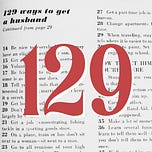


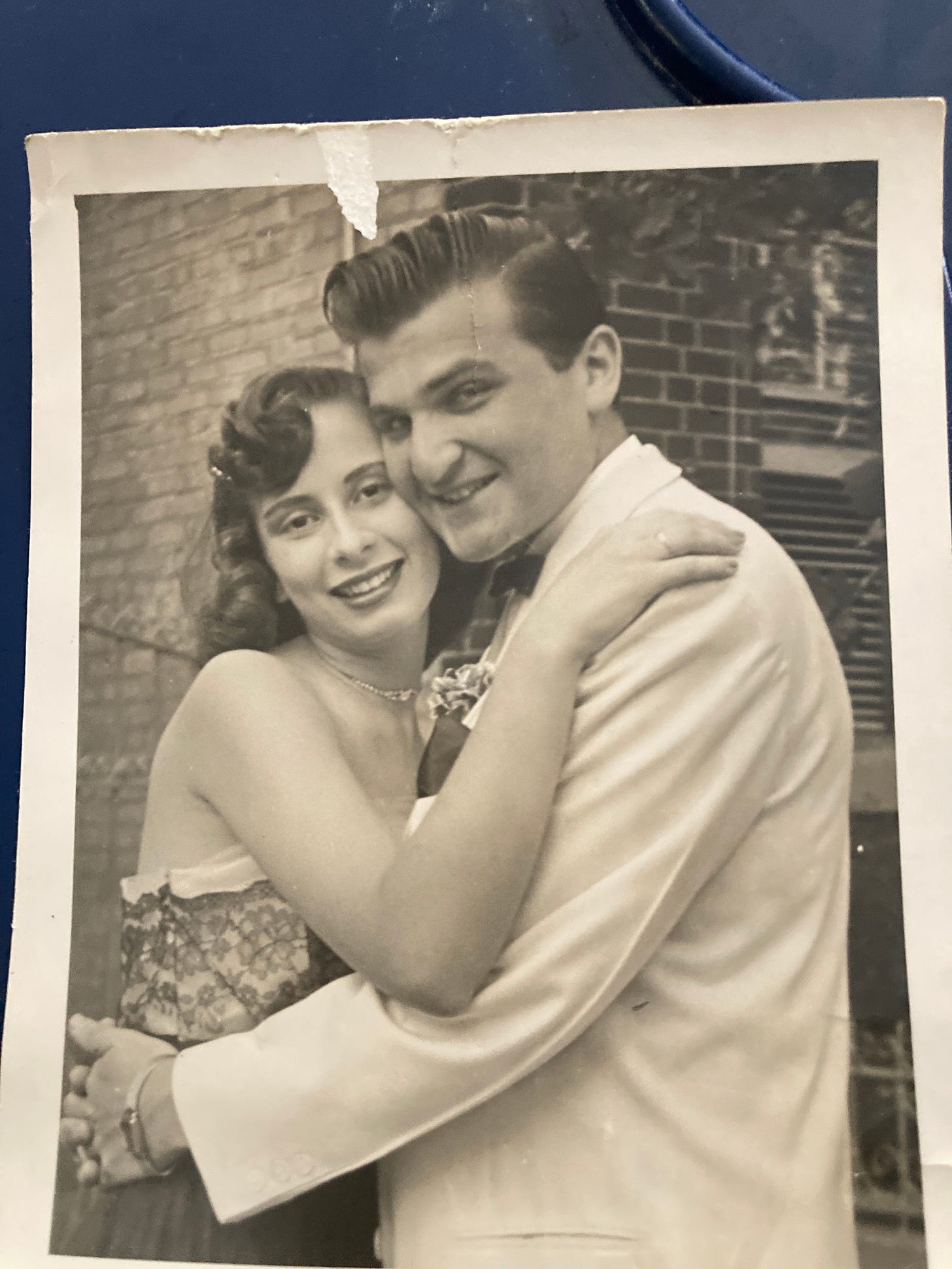
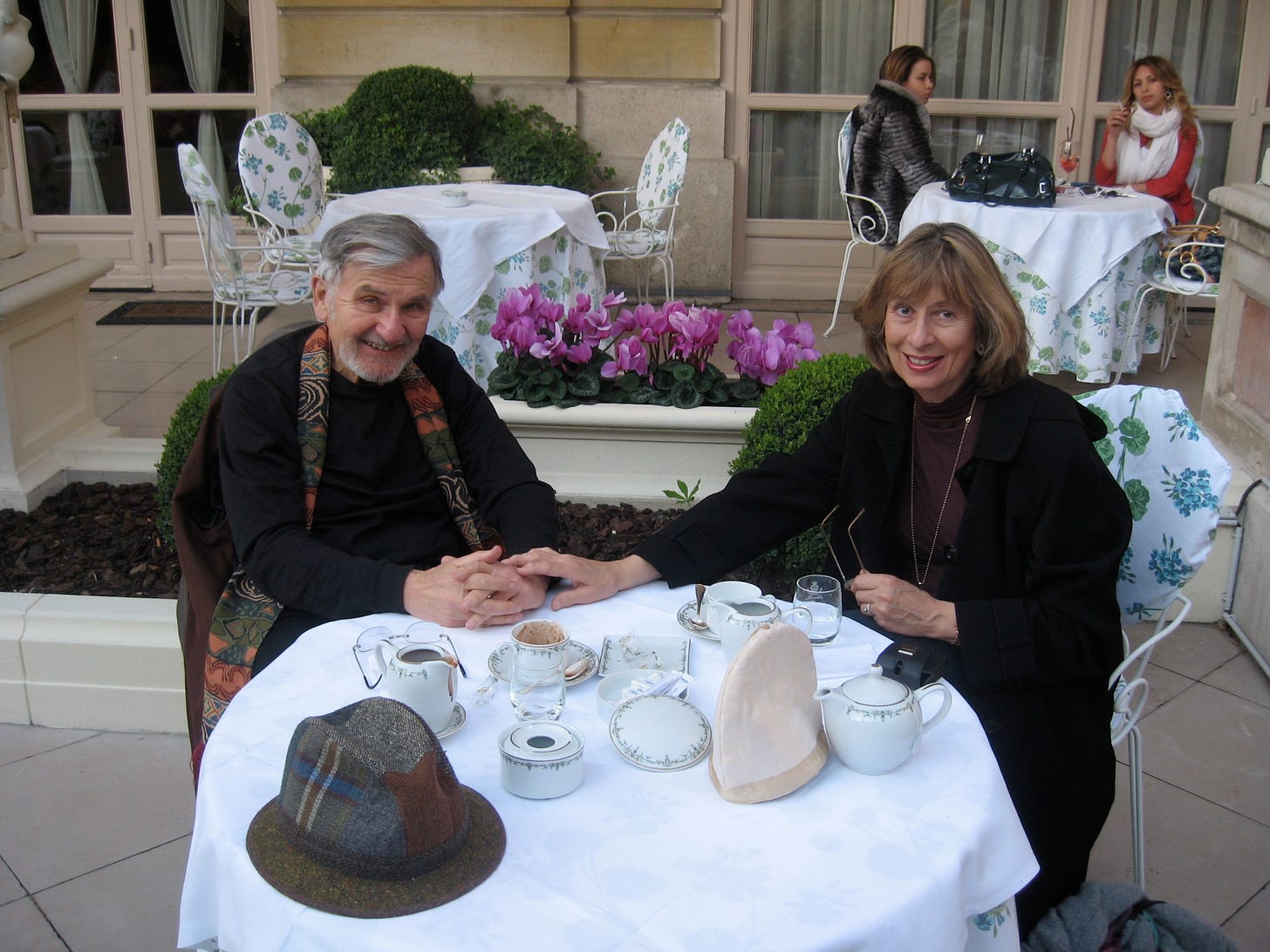
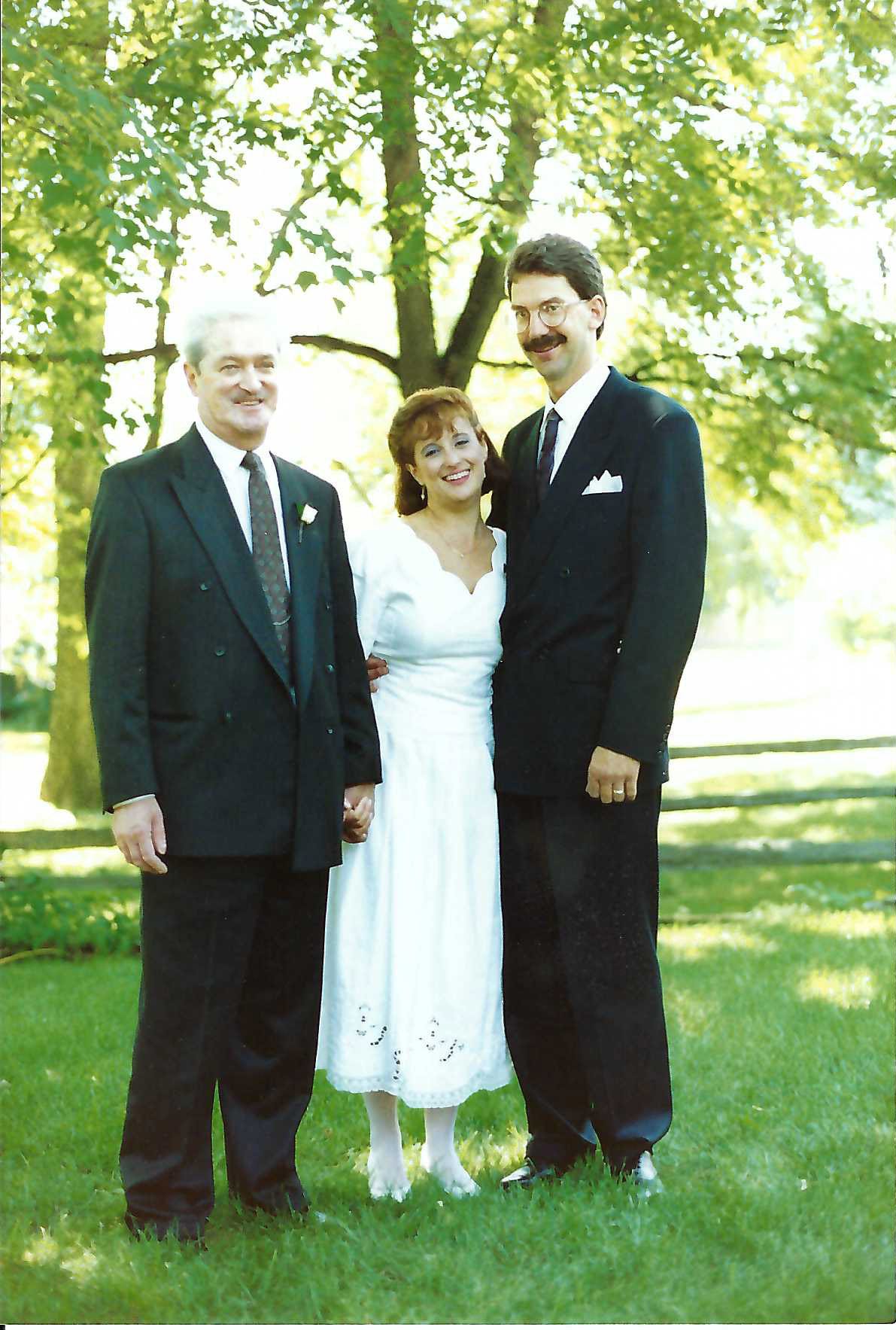


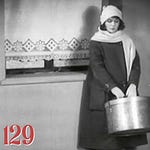




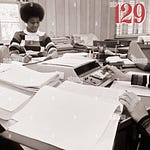

Share this post